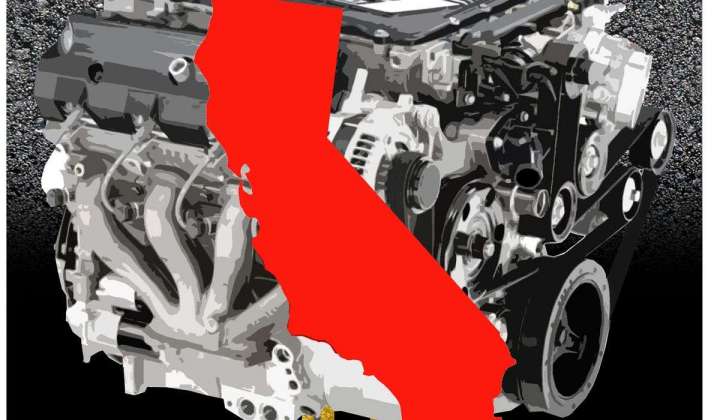Banning gas and diesel-powered cars and trucks a really bad idea

OPINION:
A few weeks ago, University of California, Davis issued a report about the likely outcome of various governmental attempts to mandate electric vehicles or ban their competitors, cars and trucks powered by gasoline or diesel fuel. The researchers were rude enough to point out that replacing all the cars and trucks in the United States with electric vehicles would require about three times as much lithium as is produced on the entire planet.
The report’s shadow conclusion was that banning internal combustion engines would mean many fewer cars by 2050 (perhaps as few as one-fourth as many cars as we have now) and much, much smaller cars. The scholars at UC Davis are to be commended for being willing to follow the truth wherever it leads.
In related news, about five dozen House Republicans introduced legislation last week that would prevent California from banning cars and trucks powered by gasoline and diesel fuel starting in 2035. The California effort, which 17 other states have indicated they will follow, is built on the regulatory and legal structure of the federal government’s efficiency mandates (the CAFE standards) and the ability of the federal Environmental Protection Agency to regulate greenhouse gas emissions from cars and trucks.
The federal Clean Air Act allows California to go beyond federal regulations if it gets a waiver from the EPA. The legislation introduced last week would preclude such a waiver.
This is a much larger issue than just California. The automakers have indicated that they would be unlikely to observe a ban on gasoline-powered cars and trucks in just half the nation. A ban in California would become a de facto nationwide ban enforced by the automakers.
It is difficult to imagine how this story ends happily. If the major questions doctrine — which articulates the Supreme Court’s view that major societal or economic decisions require direct and clear congressional guidance — means anything, it would seem to require clear and unequivocal congressional direction prior to upending the entire transportation system of the United States.
Moreover, the government’s trial run on this track — banning gas-powered stoves — has been an embarrassment marked by various people in the federal government lying about their obvious intention to ban gas stoves despite approximately zero evidence that such appliances are dangerous, environmentally or otherwise.
It hasn’t helped that those who want to make even small decisions for you — like what kind of appliances to buy — aren’t organized enough to get their lies straight. The first answer — no one is thinking about banning gas stoves — yielded pretty quickly to “we’re only going to ban them in new construction.” Or in renovated houses. Well, there will be some instances where we’ll eventually stop the flow of natural gas into homes. You get the trajectory.
If banning gas stoves, which few people care about, draws as much fire as it has, what will the response of the citizens when they find out that a few dozen bureaucrats — in Sacramento, no less — have made a decision to get rid of cars and trucks powered by gasoline or diesel fuel?
It will be ugly.
Even the decayed and effete Europeans have figured out that banning cars and trucks seems like a bad idea. Last month, the European Union tried to put in a place a hard date (2035, same as California) to ban internal combustion engines. At the last minute, however, both Italy and Germany expressed reservations, so the entire idea is on hold.
You can rest easy in the knowledge, however, that the greens in Europe, like their brethren in the United States, will keep at it until they have the power to make this decision for you.
• Michael McKenna, a columnist for The Washington Times, co-hosts “The Unregulated Podcast.” He was most recently a deputy assistant to the president and deputy director of the Office of Legislative Affairs at the White House.






